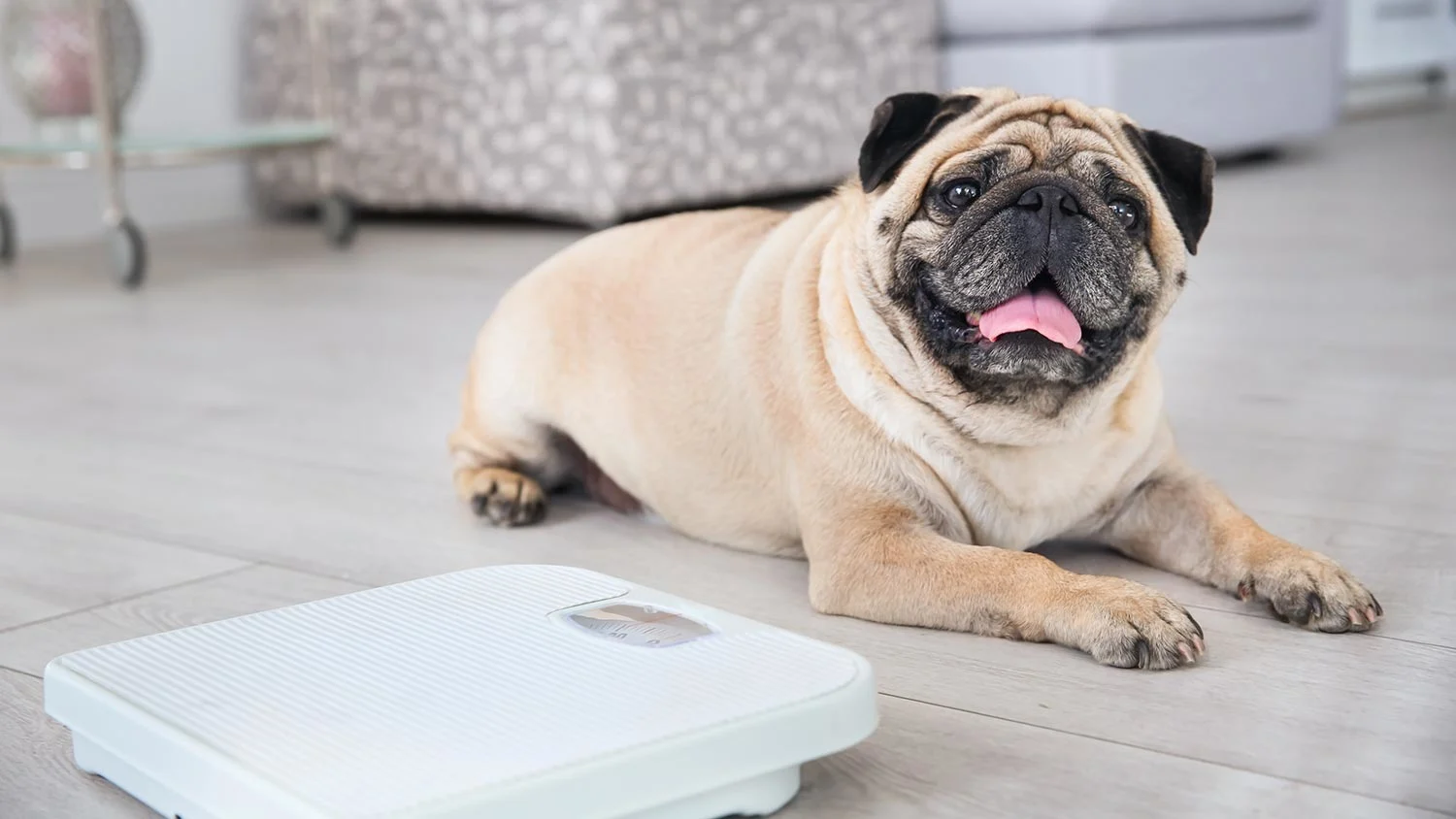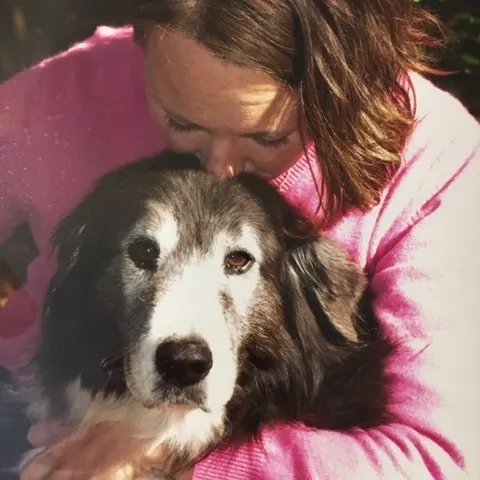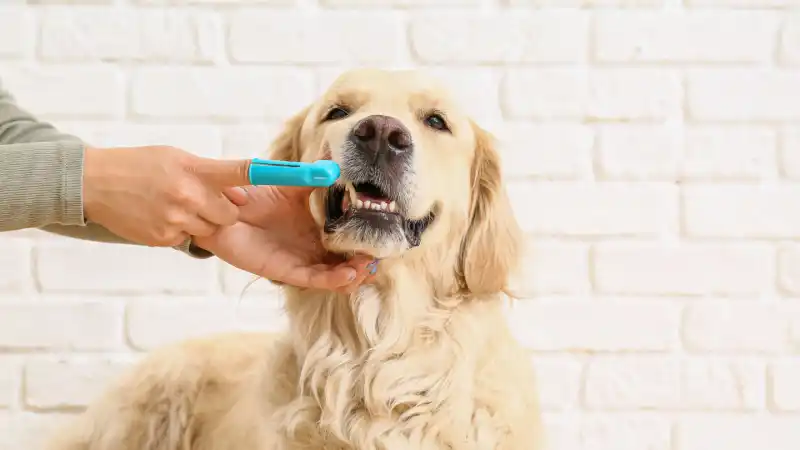Is my dog overweight?
How can you tell if your dog is overweight or not? All dogs are different, but your dog may weigh more than is healthy for their breed and size.

Understanding Canine Obesity
Canine obesity has reached epic proportions in recent years, and the trend appears to continue. The Association for Pet Obesity Prevention’s 2017 clinical survey found that 56% of dogs were classified as clinically overweight. That’s up 2% from 2016! How is obesity in dogs defined? Technically, obesity is characterized by an excess of body fat. More specifically, this relates to a body weight that is 10%-15% greater than the pet’s ideal weight. Of course, weight standards are highly subjective due to large variation among breeds, so you need to enlist the help of your veterinarian to understand where your dog falls on the spectrum.
The Truth is in the Numbers
Your veterinarian can help you determine how close your dog is to an ideal body weight by performing a Body Condition Score (BCS) evaluation. The BCS is based on a standardized scoring system that indicates an ideal weight in the middle of the spectrum, with emaciation and severe obesity at opposite ends. Pets are scored on a scale of 1-5, with an ideal BCS of 3, or an alternative scale of 1-9, with an ideal BCS of 4-5. To assess your pup, your veterinarian will examine your dog and palpate his body, giving more focus to places like the ribs, waist and lumbar regions, where fat deposits are most easily evaluated. If your vet can’t feel ribs or spine because of large fat deposits, and your dog no longer has a waist, he is likely obese and in need of a lifestyle change.
Your Dog May be Obese If…
While numbers on the scale are trending upward, your dog is likely to show you other physical and behavioral symptoms of obesity, such as:
Exercise intolerance
Heat intolerance
Lameness, often due to arthritis
Difficulty breathing
Lack of interest in exercise
Additional Health Risks for Obese Dogs
Unfortunately, canine obesity has farther reaching effects than what shows on a scale or in a BCS evaluation. Dog who are chronically obese have a much greater likelihood of a variety of health issues, including, but of course not limited to:
Increased anesthetic risk
Poor immune system responses
Hypertension (high blood pressure)
Diabetes
Liver disease
Increased risk of malignant tumor
Reduced life span
Making Adjustments
Before making any changes to diet or exercise, your veterinarian will want to eliminate the possibility of an underlying health condition that may be responsible for your pet’s extra weight. A simple blood screen will identify or rule out many of the potential threats. If an underlying condition exists, your vet will likely manage that before making any changes in diet or exercise.
Additionally, your vet will want to evaluate your dog’s diet and adjust it with a weight loss goal in mind. Consider keeping a log of your pet’s diet over the course of an average week. This will be an excellent resource for your vet in determining where the extra calories may be sneaking in! Even if you don’t suspect obesity in your pup, keeping track of scheduled meals, snacks, treats and even exceptions to the normal routine can help you manage your dog’s health and well-being. Your vet will want to know what type of commercial food your dog eats, what quantity, how often, what type of treats and how many per day and how often/what type of table food your dog may eat.
Once your vet has identified and resolved any health issues, considered your pup’s diet, and assessed his activity level, it will be time to custom fit a diet and exercise program to you and your dog! When putting together a healthy lifestyle program for your pup, your vet will consider:
Age, gender and reproductive status
General health status
Your pup’s natural level of interest in activity
Your lifestyle and ability to offer exercise options to your pup
The great news about canine obesity is that you have the power to change it! Obesity in dogs can cause a great many health concerns, but if you can be truly objective about your dog’s overall health, you and your vet can quickly identify the root of the problem and get to work on correcting it. Slow and steady adjustments to diet and exercise and regularly scheduled vet check-ups are key to your pet’s weight loss success. Healthy pets = happy pets = happy pet OWNERS!

Melissa is a dedicated animal lover, with a soft spot for rescues and critters with special needs. Melissa owns and operates Paramount Show Stables, a horse boarding and training facility, and is working toward certification as a veterinary technician, putting in hours at a local small animal clinic. When she's not caring for four-legged creatures, Melissa enjoys playtime on the farm with her husband and two young daughters, her fantastic family dog, four cats, and a farm full of horses!
READ MORE ARTICLES

